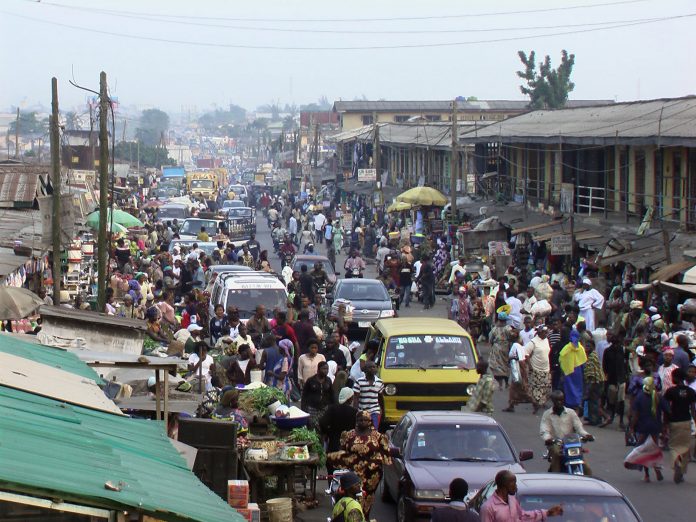Africa‘s jobless growth and high youth unemployment threaten the security of the continent’s development, says Nigeria’s Finance Minister Ngozi Okonjo-Iweala.
While sub-Saharan Africa today is on a fast-growth trajectory, young people – those under the age of 25 – account for about 60 percent of total unemployment in the region. On average, 72 percent of the youth population lives below the $2 a day poverty line, according to a World Bank Survey.
Presenting the Oppenheimer Lecture at the International Institute for Strategic Studies in London on June 19, Okonjo-Iweala pointed out the dangers of the economic exclusion of youth and offered an eight-point, youth-targeted prescription to turn the continent’s current trend of jobless growth into job-fueled growth. The prescription offers several clues for business opportunities for entrepreneurs and small and medium-size enterprises, particularly in education and skills building.
“We cannot afford to exclude our young ones from economic opportunities,” said Okonjo-Iweala, a globally renowned economist, former managing director of the World Bank and a top contender for the bank’s presidency in 2012. “We need to act fast and act smart. We need to mainstream youth employment as a core strategic objective of development, and we need to tackle issues raised with both short and long-term solutions.”
Her prescription, detailed in her COMMENTARY on this site, calls for:
- Faster, perhaps double-digit, economic growth through diversification of economies with emphasis on agro-industry, added value to raw commodities, manufacturing, petrochemicals, housing, information and communication technology, solid minerals and creative industries.
- Improvement of the investment climate to attract more private sector investment, ultimately leading to job creation;
- Development of human capital, especially women and girls, through access to quality, skills-matching education;
- Building social safety nets;
- Managing population growth so that economic growth is not cannibalized by exclusion and poverty;
- Using the “youth bulge” to power economic;
- Introducing job-creation programs in the short term.
Nigeria – where about 63 percent of the population is under 25, overall unemployment stands at 23.9 percent and youth unemployment at around 37 percent – has taken a number of steps in toward mainstreaming youth employment under the Transformation Agenda of President Goodluck Jonathan, Okonjo-Iweala said.
As examples of the fallout from high unemployment, she cited the northeast of the country, where the level of unemployment is worse than both overall and youth figures, and where the militant Islamic jihadist Boko Haram organization thrives; and Yobe and Adamawa states, where unemployment stands at about 35 percent, and where the government recently declared a state of emergency.
In Yobe and Adamawa states, unemployment is even higher during the dry season, when agricultural activity – in which more than 90 percent of the population in these states is engaged – is low.
To unleash growth and job creation, Nigeria is focusing on high-value agriculture, with a goal of creating 3.5 million jobs by 2015. It is developing manufacturing through backward integration with agriculture, and in the housing, ICT, solid minerals and creative industries and filling the gaps in infrastructure. It has also embarked on a comprehensive privatization program in the power sector, and is investing some of its petroleum subsidy savings in building new roads, bridges, and improving our rail transport system.
Improving access to and quality of education, including vocational training, at all levels is a national priority, with a view toward creating the requisite skills pool for development. The hope is to get 10.6 million out-of-school children back in school.
“The construction of 124 schools for the ‘Al-Majiri’ or ‘street children’ in northern Nigeria is ongoing to ensure that these out-of-school children, who have been a major supplier of manpower to the Boko Haram sect, are educated and liberated from the clutches of terrorist activities,” Okonjo-Iweala said.
Programs to create short-term job opportunities have already come on stream. They include a community services program for unskilled youth, which is expected to create 370,000 jobs each year over the next four years. The program has already created 178,000 jobs have so far this year; a Graduate Internship Scheme designed to support 50,000 university graduates in acquiring work experience in various private sector entities; and YouWin, a funding program that provides grants of up to US$70,000 to young entrepreneurs between the ages of 18 and 45 to help start a business or expand an existing business.
Okonjo-Iweala said beneficiaries of the first round of the three-round YouWin program have so far created about 15,000 jobs for their fellow youth, and added that the government expects 100,000 jobs to be created under the program during its three-year life.
“I remain optimistic that with the right policies, African countries can continue to the harness the potential of their youth, tackle violence and restiveness among their citizens, and ultimately build more inclusive and prosperous societies,” the finance minister said.













